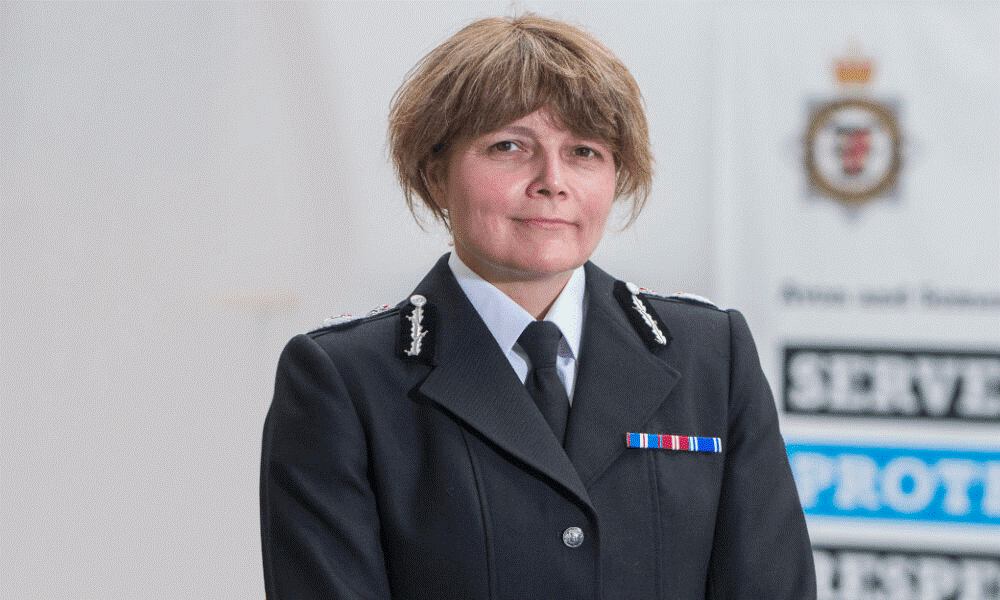Chief Constable Sarah Crew
My drive for fairness and equality lies at the heart of my passion for policing.

Sarah Crew, Chief Constable at Avon and Somerset Police tells us how she started out in the force and about heading up Project Bluestone.
What attracted you to policing?
I’ve always been determined to stand up for the underdog against the bully, and policing seemed to me to offer the greatest opportunity to help people directly on a personal, practical and human level.
You were the first female Chief Constable in Avon and Somerset Police – what other roles have you undertaken during your career?
I started out in 1994 in uniform and progressed to Detective Inspector in charge of Criminal Investigation Department (CID) 9 years later, then on to roles such as Detective Superintendent and Chief Superintendent. As well as moving through the ranks, policing gives you the opportunity to get involved in all sorts of worthwhile initiatives and take on other roles and responsibilities. For example, I’m also the (NPCC) National Police Chiefs Council’s lead on Adult Sexual Offences and headed up Project Bluestone which is now expanding nationwide under the banner of Operation Soteria.
What is Project Bluestone?
It’s a unique collaboration between those of us in policing who respond to the crime of rape and academics who have studied the various aspects and dynamics of it. We're aiming to use the academics’ knowledge and the practitioners’ experience to test and determine the best possible approach to responding to these crimes.
Why do we need Project Bluestone?
At the moment, many of the cases reported in England and Wales won’t see a conviction at court. And in between someone reporting and a case reaching trial, many thousands of cases are falling by the wayside. So we're seeking transformational change. It's one of the most traumatic offences a human being can survive and it impacts the family too.
How is it that cases don’t progress?
In many reported cases, survivors withdraw from the process and we need to make significant improvements to make it better for survivors of sexual violence. Project Bluestone works across five pillars. One of those pillars is procedural justice to shape how we engage with victims. This means making sure victims are listened to, respected, involved and informed throughout the whole process of the investigation and therefore able to stay with that investigation.
It’s an interesting approach, working with academics. How did it come about?
We were invited to give a presentation to an academic network that focuses on violence against women and girls. I set out the problems and said if there was anyone who could help us with solutions, to please get in touch. The day after, Professor Betsy Stanko OBE got in touch and shared an international evidence-based model of what a transformational policing response to rape could be. She’d set it out on one page and it immediately chimed with me.
What are you hoping Project Bluestone will achieve?
As someone who has spent 27 years being a police officer, I really feel trust and confidence in the criminal justice system is critical. Survivors need to see and feel that justice is done. All of us involved in Project Bluestone are hoping that the recommendations we want to test and implement will increase the amount of cases coming to court, bring more offenders to justice and ultimately give survivors and their families some measure of comfort. And that will be very rewarding.
Explore other serving officers’ stories on why they joined the force and what policing means to them.
